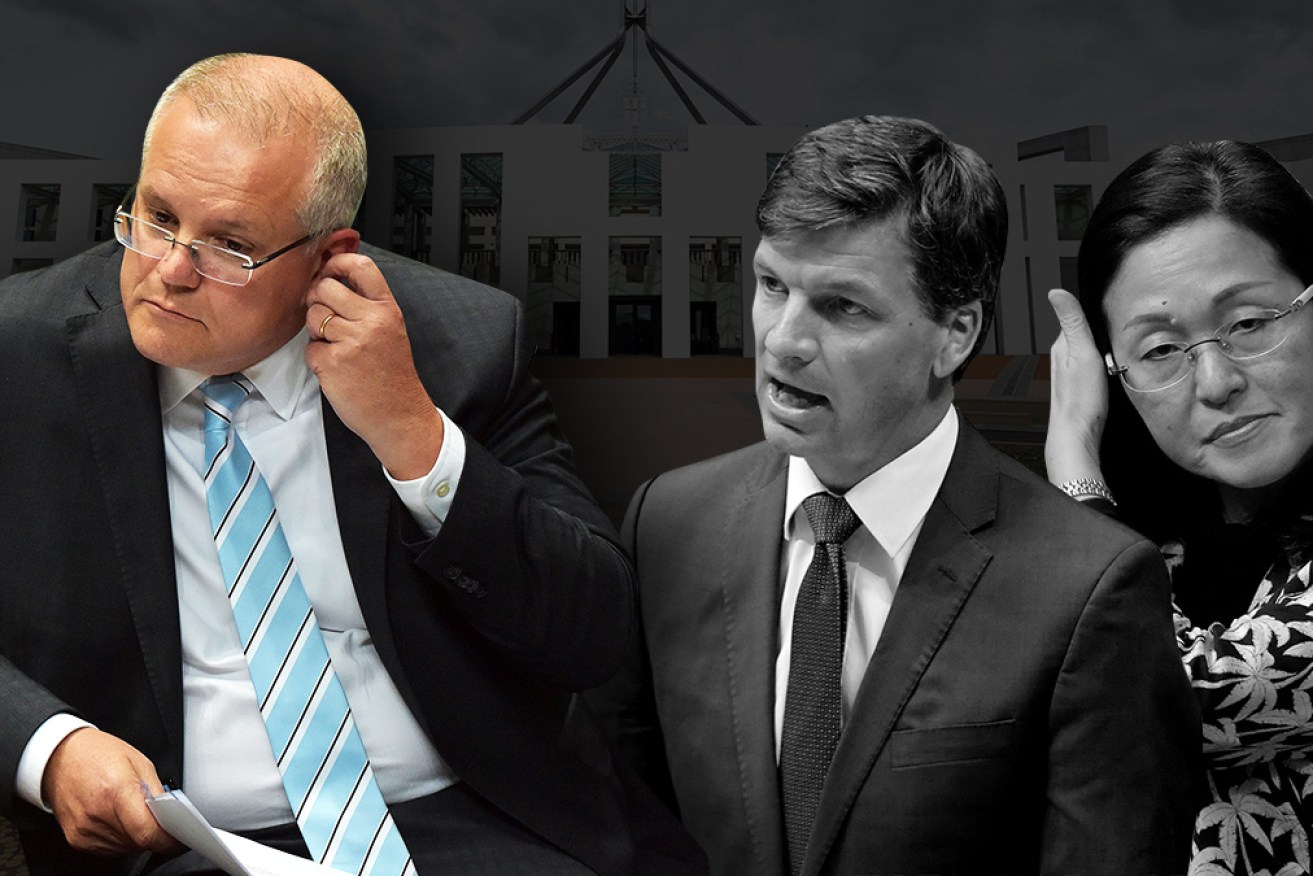Paula Matthewson: The PM wants us distracted from the very dark clouds ahead


Scott Morrison is throwing varying distractions at Australian public to hide an uncomfortable truth, Paula Matthewson writes. Photo: TND
If you’re paying attention to federal politics at the moment, despite evidence that a growing number of us aren’t, you may have noticed a lot of ‘distraction’ politics going on.
This is the political equivalent of the “oooh, look over there” tactic that your child, spouse, friend or work colleague may use to avoid discussing something that casts them in a bad light.
By pointing the finger at someone else and making a fuss, the Morrison government has created a whiplash of distractions in the hope that the small number of voters who are actually paying attention won’t notice there’s at least one disaster, and potentially more, looming for the federal government.
One distraction was the new law to strengthen penalties against activists protesting on farms, dubbed ‘vegan farm invaders’ during the parliamentary debate. Another was proposed legislation to impose mandatory minimum sentences for pedophiles, which was introduced for debate next week.
And not to be left out of the “look over there” antics, Home Affairs Minister Peter Dutton used the offensive term ‘anchor babies’ to describe the Australian-born daughters of the Tamil couple seeking asylum.
However, the biggest diversion this week was the Coalition’s plan to introduce drug testing and a cashless card for welfare recipients. When in need of a stick to stir the social media hornets’ nest and create headlines, dole-bludger bashing will always deliver.
There’s also a reason why the government chose these particular issues to distract us. According to media reports of recent remarks made by PM Morrison to a meeting of the NSW Liberal Party state council, the government is igniting these debates to create a ‘test’ for the Labor opposition of where its ‘loyalties’ lay.
No wonder voters are switching off. Guardian Australia’s Essential Poll reported last week that only 15 per cent of people said they closely followed federal politics. Another 31 per cent only paid attention at election time or when ‘something big’ was happening. Fifteen per cent said they had no interest in politics at all.

Prime Minister Scott Morrison is using shiny things to divert our attention from his government’s dark underbelly. Photo: AAP
This leads to the obvious question – what is it that the PM is so desperate to distract us from?
Firstly, the government would rather we didn’t pay any mind to the clouds hovering over a number of its MPs – such as the ‘grassgate’ questions that continue to plague energy minister Angus Taylor, and the mess created by Victorian Liberal backbencher Gladys Liu’s vagueness about her links to the Chinese government.
Then there’s the challenges that have been launched in the High Court against the elections of Ms Liu as well as Treasurer Josh Frydenberg. It’s also becoming increasingly difficult for the government to ignore the role of climate change in the ongoing drought conditions that are ravaging parts of the nation.
However the biggest elephant in the room is the floundering economy, and very soon no government diversion will be outrageous enough to keep our attention from what is a looming economic disaster.
The contrast with the Global Financial Crisis in 2008 is stark. At the time, prime minister Kevin Rudd and his treasurer Wayne Swan knew they had a choice – either inject bucketloads of cash into the economy by giving it directly to voters (who would spend it), or protect the mythical budget surplus (which might not happen anyway if the economy tanked).
They chose the cash, and Australia became the miracle that survived the GFC.

Teetering on the edge of the Global Financial Crisis, then prime minister Kevin Rudd and his treasurer Wayne Swan opted for a cash injection. Photo: Getty
Now Australia is facing its own financial crisis, with the slowest economic growth in a decade. Mr Morrison and Treasurer Frydenberg hoped that personal tax refund rebates of $1080 would flow into the economy but the Westpac-Melbourne Institute consumer sentiment survey reported this week that 25 per cent of households did not intend to spend their refund, and 50 per cent planned to spend less than half.
Very soon our PM and Treasurer may be faced with the same choice that challenged their counterparts back in the GFC. But having placed so much political store on delivering a surplus – bringing the budget ‘back in black’ – it’s hard to see them finding a graceful retreat from that commitment.
What does that mean for the economy, and for you and me? That is exactly what the government is trying to distract us from thinking about.








